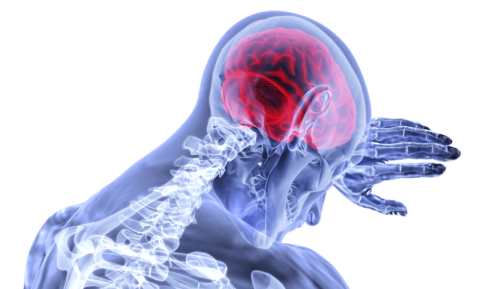Trigeminal neuralgia, or tic douloureux, is an excruciating condition affecting one side of the face. It involves the trigeminal, or fifth cranial nerve, which carries sensory information from the face to the brain. This condition is often caused by nerve irritation, such as from blood vessels rubbing against it, which can damage its protective layer called the myelin sheath. The result is intense shooting, burning, or electrical pain lasting seconds or minutes.
Simple activities like brushing your teeth, combing your hair, applying makeup, or even exposure to a light breeze or cold air can trigger the pain. But what causes trigeminal neuralgia?
Causes of Trigeminal Neuralgia
- Blood Vessel Compression: The most common cause is a blood vessel pressing on the trigeminal nerve.
- Multiple Sclerosis: Damage to the myelin sheath from this disease can lead to trigeminal neuralgia.
- Tumors: Rarely, a tumor pressing on the nerve can cause pain.
- Brain Lesions or Injuries: These can damage the trigeminal nerve.
- Genetic Factors: Some people may inherit a tendency to develop the condition.
Trigeminal Neuralgia Symptoms
- Severe Pain: Described as shooting, burning, or electrical shocks, usually on one side of the face.
- Short Duration: Each episode lasts from a few seconds to a few minutes.
- Trigger Points: Pain can be triggered by touching certain areas of the face or engaging in activities like chewing or speaking.
- Frequency: Episodes can occur rapidly, sometimes leading to prolonged pain.
Treatment Options for Trigeminal Neuralgia
- Medications:
- Carbamazepine (Tegretol): A seizure medication that stabilizes nerves. It is the most studied treatment and is effective.
- Oxcarbazepine (Tileptal): Like carbamazepine, it reduces nerve impulses in overly excited nerve cells and is also used for seizures.
- Lamotrigine (Lamictal): Stabilizes nerve cell membranes.
- Gabapentin (Neurontin): Alters the activity of neurotransmitters, which carry messages between nerve cells.
- Pregabalin (Lyrica): Reduces pain messages sent from nerves to the brain.
- Baclofen: Usually used as a muscle relaxant, it can be prescribed as an adjunct therapy for nerve pain.
- Surgical Options:
- Microvascular Decompression: Surgery to relieve pressure on the trigeminal nerve.
- Gamma Knife Radiosurgery: A non-invasive procedure that uses focused radiation to damage the nerve and reduce pain.
- Balloon Compression: A balloon is inflated near the nerve to damage it and block pain signals.
- Rhizotomy: Destroying nerve fibers to block pain.
- Lifestyle and Home Remedies:
- Soft Diet: Eating soft or liquid foods to avoid triggering pain.
- Avoid Triggers: Identifying and preventing specific triggers such as hot or cold foods and extreme temperatures.
Did you know? QuickMD can diagnose and treat trigeminal neuralgia online via telemedicine and prescribe carbamazepine or other prescription medications online.




